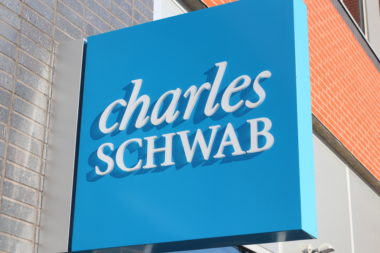Unlike banks, which are for-profit businesses that operate to make money for stakeholders, a credit union has a focus on its customers and operates as a nonprofit business. In other words, a credit union operates in the same way a bank does, offering a range of financial services, but without the overarching need to turn a profit.
Instead, the members of a credit union pool their money by buying shares in the cooperative. This enables the credit union to provide demand deposit accounts, loans, and to fund products and services for its members.
Credit unions and banks offer their own features and benefits. If you are seeking banking and financial opportunities with different institutions, this guide will explain how credit unions operate, as well as the pros and cons of opening an account with a credit union.
Table of Contents
Credit Union vs. Bank
Credit unions are nonprofit organizations that offer the same financial services a bank does, including loans, credit and debit cards, checking and savings accounts, and even online bill pay. Unlike traditional banks that operate to make money, credit unions ostensibly operate with their member’s best interests in mind.
Credit Union vs. Federal Credit Union
Not all credit unions are created equal. There are credit unions and federal credit unions. Credit unions can operate under control of the state government or the federal government. If a credit union operates under the federal government, it is considered a federal credit union.
Generally, the two different types of credit unions offer the same kind of services but differ in how they are insured. Credit unions chartered by state governments are regulated by that state’s Department of Financial Services (DFS), while federal credit unions are regulated by the National Credit Union Administration (NCUA).
Additionally, federal credit unions operate under a specific charter: single common bond, multiple common bond, or community. The charter that a credit union operates under dictates the type of members it caters to or the geographical region the credit union serves.
Credit Union Membership
To become part of a credit union, you must become a member. Credit unions have a field of membership that defines who is eligible to join. To increase their amount of memberships, credit unions have expanded their membership offerings.
Each credit union typically has its own membership requirements, but generally, the following candidates are eligible to join a credit union:
- Family of current members.
- Those within the designated geographic area of the credit union.
- Those who are employed by the company operating the credit union.
- Those who belong to a particular group such as a religious center or educational facility, labor union, or homeowner’s association.
What Is a Member Number for a Credit Union?
A member number for a credit union is a unique series of numbers that serve as your identity at a credit union. Each account that you hold with the credit union — credit cards, checking, savings, and loans — is tied to your individual membership number. Most credit unions will assign an additional, separate sequence of numbers to designate the type of account you hold.
For example, your member number might be 12345, while your checking account is 12345-6789.
What Are the Advantages of Using a Credit Union?
There are a number of reasons someone might sign up to become a member of a credit union. One of the most advantageous opportunities that come with joining a credit union is the personalized experience. Because a credit union seeks to provide its members with convenience, members are put first and treated with a very personalized approach. This often simplifies dealing with personal finance matters, which can sometimes be trivial.
In addition to the personalization of service that credit unions offer, credit unions have deposit insurance, which protects the funds you deposit into checking, savings, money markets, and certificates of deposit (CDs). This allows members to trust that their money is protected, creating peace of mind when it comes to personal finances.
The rates at credit unions are also viewed as a benefit to members. Credit unions are known for offering high-interest rates on checking and savings accounts and some of the lowest interest rates on loans. Similarly, credit unions typically have low fees to apply for loans and credit cards. When it comes to personal finance, this means more money in members’ pockets.
What Are the Disadvantages of Using a Credit Union?
While there are many advantages to using a credit union, there are also a few factors that many see as disadvantages. Perhaps the biggest disadvantage of using a credit union is the need to meet membership requirements. Not everyone qualifies to join a credit union, which makes it unfavorable to those outside of a credit union’s demographic.
Additionally, while credit unions are regarded for having better customer service than traditional banks, that doesn’t necessarily mean credit unions offer better financial options than traditional banks. Smaller credit unions may not have the manpower or budget to provide the same services as a bank provides or to offer as many locations as a national bank has.
Similarly, smaller credit unions might not have the most updated technology and therefore may be unable to offer new advancements in banking technology.
Bank or Credit Union — What Is Right For You?
Before you choose to open an account with a traditional bank or a credit union, consider what you’re hoping to get out of your financial institution. Do you want convenience when it comes to cashing checks and the latest offerings in banking? A traditional bank might be the best option for you. If you want excellent interest rates on a checking or savings account, a credit union might be your best bet.
Don’t forget to consider that banks and credit unions differ in the interest rates, lines of credit, and loan fees they offer. When choosing a bank or credit union that’s right for you, it really comes down to your personal finance habits and what you’re hoping to gain from your financial institution.
Whether it’s with a traditional bank or credit union online, use this guide to help you make the choice that’s best for you and your finances.
Image Source: https://depositphotos.com/





